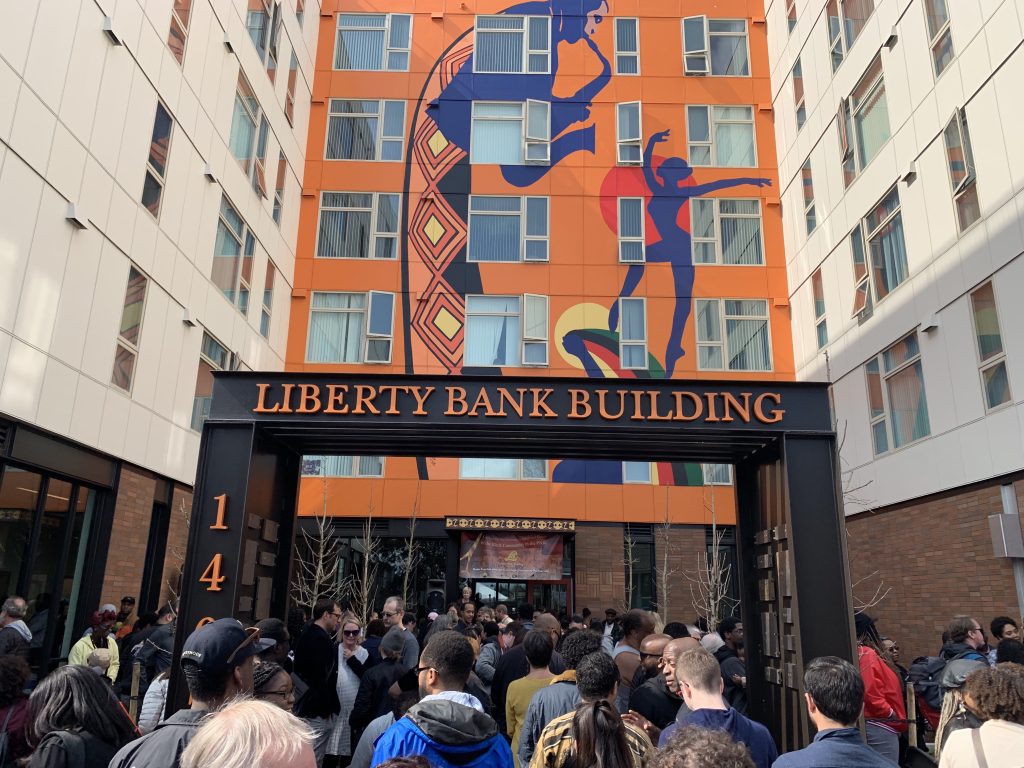For the upcoming 2021 Washington legislative session, Futurewise is proposing several significant changes to the state’s Growth Management Act. Under its campaign called Washington Can’t Wait, the organization is proposing substantial changes to the law. Fitting this hot, tumultuous year, Futurewise is proposing amendments that will compel counties and cities to add stronger climate change, housing, and environmental justice components to their comprehensive plans.
With a focus on the Growth Management Act (GMA), it would be predictable for a development watchdog to keep its eyes and contacts in urbanized areas. That kind of gatekeeping, however, would run counter to many of the equity ideas that Washington Can’t Wait is trying to add to state law. During the upcoming Week of Action from November 16-20, the campaign is drawing on voices from every corner of the state to contact legislators in a show of support for the legislative work to be done. In that way, Futurewise is living the equity and environmental justice ideals they promote.
The Washington Can’t Wait’s campaign coordinator is Jamie Ptacek. “We are actively seeking ways to be more equitable and inclusive in our work as an organization, including in building this campaign, from the crafting of our legislation to the ways we are engaging in our communities,” she said. A broad coalition is necessary for developing the legislation, getting it passed by the Washington legislature, and implementing the policies in the coming years.
The GMA is the mechanism through which local cities and counties produce comprehensive plans. According to Bryce Yadon of Futurewise, “comprehensive plans are supposed to be a roadmap that is translated into actionable items and outcomes” by municipalities and counties. The local jurisdictions then set zoning and policies to achieve these outcomes.
Some parts of the current GMA are more successful than others. “We have seen parts of comprehensive plans be actionable items,” Yadon says. “Those are items in which it is easy to measure an outcome such as protecting farmland and reducing growth in rural areas. We know that this isn’t enough, and Futurewise wants to see comp plans be actionable and produce the outcomes the GMA is intended to produce.”
Specific numbers can be developed for two of the targeted amendments: housing and climate change. The housing element can change the definition of “affordable” housing or promote duplexes, triplexes, and infill housing that is missing in many jurisdictions. These goals can be reviewed during periodic check-ins to see if the investments are working.
The climate element can have targets for greenhouse gasses and vehicle miles traveled that will be reviewed by the Washington Department of Commerce and the Washington Department of Ecology. These numbers will drive investments in transportation funding.
As Yadon points out, “The more definition we can add that are clear requirements and outcomes the more actionable that the comprehensive plans become.”
That leaves the third proposed amendment–environmental justice–notoriously more difficult to measure.
For the campaign, environmental justice has two parts. First is the fact that there is environmental injustice. Environmental degradation disproportionately and consistently impacts the communities where Black, Indigenous, and People of Color are forced to live.
The second part is actively pursuing justice through a process to ensure that communities are being treated fairly and are given the opportunity to be involved. “When we approach the planning process with an eye towards justice,” says Ptacek, “we take important steps to ensure that the disproportionality in who is bearing the brunt of environmental impacts does not persist.” This involves participatory planning, centering voices of impacted communities, and looking to the past to actively undo discriminatory and exclusionary land-use policies.

The proposed GMA amendments reflect these principles, Yadon said. “One way we are approaching this is to require cities to review and address policies that are rooted in racial bias and result in exclusionary housing outcomes. Another approach is to address the disproportionate impacts of air, water, and other forms of pollution and to address the compounding environmental impacts.” The bill will also require counties and cities to involve all communities in culturally appropriate ways in the planning process.
Here, Futurewise is leading by example. “In developing these policies,” Ptacek says, “we are engaging with stakeholders and organizations across the state who represent a broad range of interests and identities–from groups focused on justice and equity, to advocates for affordable housing and organizations working to ensure we protect our environment and natural resources.”
During the upcoming Week of Action, the group is trying to make it as easy as possible for people to reach out to their legislators. Washington Can’t Wait will be providing a Guide to Action that includes scripts, templates, campaign resources and step-by-step directions for outreach. A team of volunteers is sending reminders and offering support to people who sign up to write letters and make phone calls. Ptacek hopes “to make contacting your legislators as easy as possible so that even if you only have five minutes one day next week, you can help make a difference by adding your voice to the chorus of others that will be urging their legislators to update the GMA.”
One of the partnering groups is Share the Cities, which is planning a Climate Action Flashmob for November 18th at noon. According to organizer Laura Loe, the outreach is important because time is short for the next round of comprehensive plans to acknowledge climate injustice. “This is work everyone who cares about affordable housing and climate change should be plugged into. All the [planning] acronyms obscure the deep transformative change that Washington Can’t Wait is trying to bring about through state level changes to the Growth Management Act.”
Here at The Urbanist, we try to keep tabs on the systems that perpetuate racism in our community. We try to call them out when we find them in weird places, from the mortgage interest deduction to reliance on police cruisers to municipal boundaries. The deep structural problems are the ones that keep catching our attention because of their persistence. Even after a year of protest and half-steps and exhaustion, the systemic issues seem more immovable. Is it appropriate for an organization like Futurewise to use up political capital on a really hard systemic question like environmental justice?
Ptacek looks at it a different way: “These issues may be uncomfortable and difficult to address, but not anywhere near as difficult as the realities of communities and individuals whose lives have been defined by their unfair exposure to the worst impacts of environmental degradation and climate change. People whose air is choked with pollution from nearby industry, whose homes are in the pathways of airports, whose water and land is impacted by environmental degradation that they did little to cause- these are the people who live in true and harmful discomfort.”
Or, as Ptacek puts it, “It’s true, racism in our land-use policy is deeply imbedded, and that is simply a sign that we are long overdue to right our wrongs. Just because something is difficult and uncomfortable doesn’t mean it isn’t the right thing to do.”
You can join the Washington Can’t Wait campaign for its Week of Action, November 16-20. Sign up here.
The Take Climate Action Zoom Flashmob with Share The Cities is Wednesday, November 18 at 12pm. Sign up here.
Ray Dubicki is a stay-at-home dad and parent-on-call for taking care of general school and neighborhood tasks around Ballard. This lets him see how urbanism works (or doesn’t) during the hours most people are locked in their office. He is an attorney and urbanist by training, with soup-to-nuts planning experience from code enforcement to university development to writing zoning ordinances. He enjoys using PowerPoint, but only because it’s no longer a weekly obligation.



